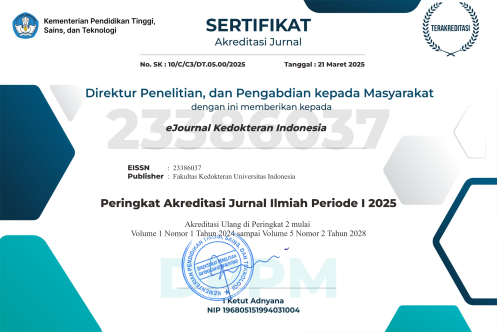Challenges in Diagnosis & Management of Type B Interrupted Aortic Arch
Keywords:
IAA, diagnosis, managementAbstract
AbstractInterrupted aortic arch (IAA) is a rare genetic disorder of the cardiovascular system, present in approximately 2 cases per 100,000 live births and comprising 1.5% of all cases of congenital heart disease (CHD). Its hallmark feature is a lack of luminal continuity between the ascending aorta and the descending aorta. In the absence of surgical repair, mortality approaches 75% in the first month of life and 90% by one year. A four months old female baby was referred with dyspnea, failure to thrive and recurrent respiratory infection. Physical examination revealed blood pressures and oxygen saturation were lower at upper right arm and both legs. The CXR examination revealed absent of aortic knob. The echocardiography showed aortic interruption between the left common carotid artery (LCCA) and left subclavian artery (LSCA). Cardiac MSCT showed LSCA and descending aorta come from PDA. The patient was managed with two stages surgery. Bilateral PA banding was done as first stage surgery. IAA repair and VSD closure are planned as second stage surgery.
Downloads
Published
How to Cite
Issue
Section
License
Copyright (c) 2022 Maruli Butarbutar, Ganesja M. Harimurti, Oktavia Lilyasari, Renan Sukmawan

This work is licensed under a Creative Commons Attribution-NonCommercial 4.0 International License.



